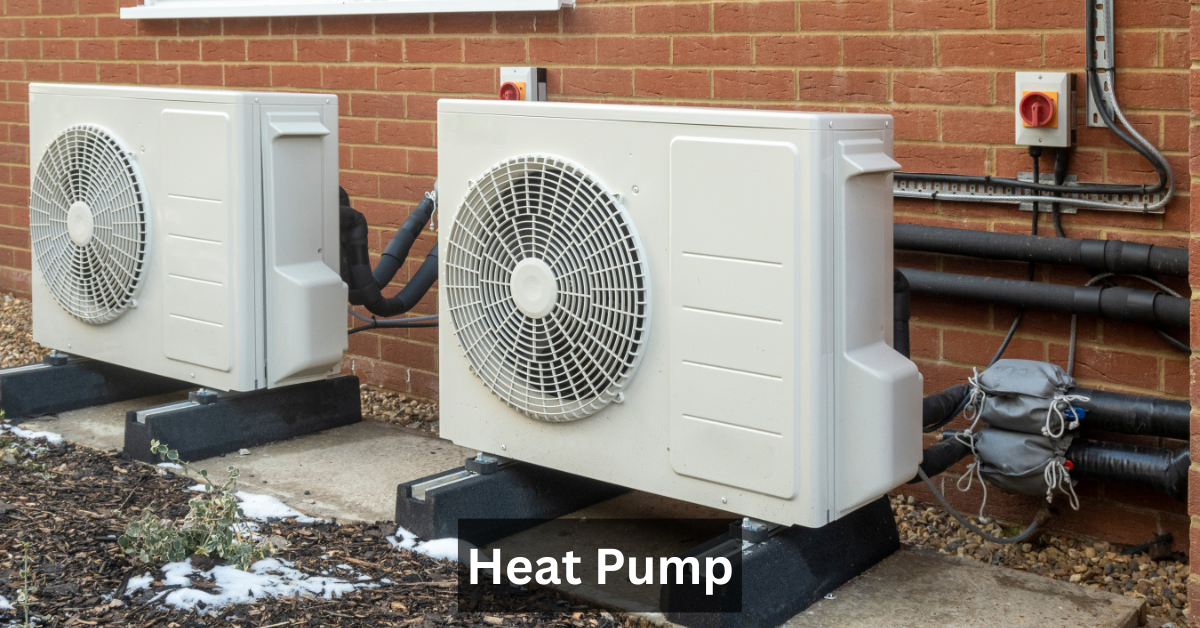A heat pump is an innovative system designed for energy-efficient heating and cooling in homes and buildings. Unlike traditional HVAC systems that rely on burning fuel or using resistance to generate heat, a heat pump works by transferring heat from one place to another using the principles of refrigeration. This simple yet powerful concept allows the heat pump to provide comfortable indoor temperatures all year round—warming your home in the winter and cooling it during summer.
The year 2025 has seen a significant shift in how homeowners and commercial property owners think about comfort, cost-efficiency, and environmental impact. This shift has led to the rise of the heat pump as a leading solution. From air source heat pumps to geothermal systems, this technology is rapidly replacing outdated furnaces and air conditioners. With backing from the U.S. Department of Energy and endorsements from ENERGY STAR, the heat pump has become a standard in renewable heating systems worldwide.
How a Heat Pump Works: The Science of Smart Comfort
The Basic Mechanism of Heat Transfer
A heat pump operates on a basic thermodynamic principle—moving heat instead of generating it. Using a compressor, refrigerant coils, and an expansion valve, the system extracts heat from the air, ground, or water and transfers it to your home. Even in cold weather, there’s residual heat in the environment that a heat pump can capture, making it ideal for climate control systems in various regions.
Switching Modes for Year-Round Use
The functionality of a heat pump is versatile. In cooling mode, it behaves much like an air conditioner, drawing warm air from inside and pushing it outside. In heating mode, it reverses the cycle and extracts heat from the environment to warm the interior space. This adaptability is why heat pump systems are considered ideal for regions with mild to moderate winters and hot summers.
Core Components of a Heat Pump System
A modern heat pump consists of a compressor (often using inverter technology), indoor and outdoor coils filled with R-410A refrigerant, and a reversing valve that switches between heating and cooling. Other crucial parts include the expansion valve and blower. The Seasonal Energy Efficiency Ratio (SEER rating) and Coefficient of Performance (COP) help measure how effective and energy-efficient your heat pump system is.
Types of Heat Pumps for Every Need
Air Source Heat Pump (ASHP)
An air source heat pump is the most common type installed in residential homes. It pulls heat from the outside air and delivers it indoors. ASHPs are often the most budget-friendly option and are ideal for moderate climate zones. Top brands such as Carrier, Trane, and Daikin offer advanced air source models with smart thermostat compatibility and excellent energy efficiency.
Ground Source (Geothermal) Heat Pump (GSHP)
A ground source heat pump, also known as a geothermal heat pump, draws heat from the earth’s stable underground temperature. These systems are among the most efficient and long-lasting, offering sustainable home heating with minimal operational costs. While initial heat pump installation costs are higher, the ROI over time makes them highly attractive.
Ductless and Mini Split Heat Pumps
The ductless heat pump, also known as a mini split heat pump, is a flexible solution for homes without ductwork. These systems allow for room-by-room temperature control and are a favorite among those looking to retrofit older homes. LG HVAC and Mitsubishi Electric are among the largest heat pump manufacturers, offering highly efficient and stylish mini-split models.
Hybrid Heat Pumps and Water Source Options
A hybrid heat pump combines the benefits of electric and gas systems, switching between the two based on which is more energy-efficient at any given time. Meanwhile, water source heat pumps are excellent in buildings located near large water bodies and function similarly to ground-source systems.
Heat Pump vs Traditional HVAC Systems
Why a Heat Pump Is Superior to a Furnace
While a furnace burns fuel to create heat, a heat pump moves existing heat into your home. This results in lower energy consumption, reduced carbon footprint, and significant utility bill savings. Additionally, there’s no risk of carbon monoxide poisoning with a heat pump, making it safer for families.
Heat Pump vs Central AC: Double the Value
Traditional air conditioning systems only provide cooling. A heat pump not only cools but also heats, making it a two-in-one system. With leading HVAC solutions integrating compressor technology, modern heat pumps perform as well as or better than standalone AC units.
Compared to Electric Heaters and Boilers
Electric resistance heating is among the most expensive to operate. A heat pump can provide the same level of comfort using up to 75% less electricity. That’s why more homeowners are moving away from baseboard heaters and outdated boilers to embrace heat pump systems.
Advantages of Using a Heat Pump
Outstanding Energy Efficiency
One of the primary reasons people switch to a heat pump is its superior efficiency. Whether it’s an air source or geothermal model, a high SEER rating ensures less power usage and more savings. Modern systems from Daikin and Trane often exceed 20 SEER, placing them among the most efficient units available today.
Environmental Benefits and Carbon Reduction
Using a heat pump can help reduce household greenhouse gas emissions by up to 50%. By switching from oil, propane, or electric resistance heating, you’re not just saving money—you’re actively participating in global carbon footprint reduction goals set by the EPA and U.S. Department of Energy.
Year-Round Comfort with Better Indoor Air
Another overlooked advantage of a heat pump is its ability to filter, humidify, and purify indoor air. This ensures indoor air quality stays high year-round, reducing allergens, dust, and moisture buildup.
Cost of Installing a Heat Pump
How Much Does a Heat Pump Cost?
The heat pump cost varies widely based on type and capacity. Expect to spend between $3,500 and $7,500 for an average residential heat pump system. For geothermal models, the price can range from $10,000 to $20,000, depending on site-specific factors.
Installation Expenses and Considerations
Heat pump installation should be done by licensed HVAC contractors with experience in energy systems. Costs typically include equipment, labor, ductwork (if needed), permits, and thermostat upgrades. Professional sizing, heating load calculation, and site inspection ensure long-term efficiency and comfort.
Incentives and Long-Term Value
Federal tax credits, state rebates, and utility company incentives can significantly reduce your upfront investment. Thanks to initiatives from the ENERGY STAR program, switching to a heat pump has never been more financially accessible.
Best Heat Pumps of 2025 and Top Brands
Leading Brands and What Sets Them Apart
Among the largest heat pump manufacturers, brands like Mitsubishi Electric, Daikin, Carrier, Trane, and LG HVAC continue to lead with innovation. Their systems boast smart integration, high COP values, and cold climate capabilities, making them suitable for almost any home.
Performance in Climate Zones
From hot southern states to freezing northern regions, these brands manufacture cold-weather heat pumps tailored for various DOE climate zones. Features like hyper-heating compressors and dual-stage heating ensure performance even in sub-zero temperatures.
Heat Pumps in Cold Climates
Yes, They Work in Winter
Modern heat pump systems are engineered to operate efficiently even when outdoor temperatures drop below -13°F (-25°C). Advances in compressor technology and coil design make this possible.
Tips for Freezing Temperatures
Keep outdoor units clear of snow, schedule regular maintenance, and use a smart thermostat to optimize runtime. You’ll ensure your heat pump performs at its peak all winter long.
Maintaining Your Heat Pump
Routine Maintenance for Longevity
Every heat pump benefits from periodic cleaning and inspection. Clean filters monthly, inspect outdoor units, and have professionals check refrigerant levels and electrical connections.
Avoiding Common Issues
A properly maintained heat pump runs efficiently for up to 20 years. Common problems like ice buildup or airflow loss are easy to prevent with regular care.
Integrating Heat Pumps with Smart Technology
Smarter Climate Control
Pairing your heat pump with smart thermostats like Nest or Ecobee allows you to automate heating and cooling based on your daily schedule, weather changes, and energy usage.
Monitor and Optimize Energy Use
Track performance metrics like SEER, COP, and energy consumption in real-time. Many systems include mobile apps and dashboards to help users take full control.
Heat Pump Water Heaters
Efficient Water Heating Solutions
A heat pump water heater uses the same technology as space heating units but is dedicated to water heating. It draws ambient air to warm your water, reducing electricity usage by up to 70%.
Choosing and Installing the Right Heat Pump
What to Look For
Always consider climate, home size, insulation, and ductwork before selecting a unit. Work with professionals who can perform a heating load calculation to avoid under- or oversizing.
Installation Timeline and Permits
Installation typically takes 1–3 days. Permits depend on local codes but are usually handled by the contractor. Always work with a licensed HVAC contractor to ensure a smooth experience.
Environmental Impact and Sustainable Living
Supporting Green Building Goals
A heat pump aligns perfectly with green building certifications like LEED. With eco-friendly refrigerants and energy-efficient performance, it supports both environmental and economic sustainability.
Conclusion
The heat pump is no longer just an alternative—it’s the gold standard in modern heating and cooling. With high efficiency, year-round comfort, and lower operating costs, it delivers what every homeowner wants: savings, safety, and sustainability. Whether you choose an air source, ground source, or mini split heat pump, you’re investing in your comfort and the planet’s future.
Backed by leading brands, approved by government energy agencies, and increasingly powered by smart technology, the heat pump is the future of environmentally friendly HVAC systems.
Frequently Asked Questions
How long does a heat pump last?
Most systems last 15–20 years with proper care.
Can a heat pump replace a furnace?
Yes, especially in moderate and warm climates, or with a hybrid heat pump in colder areas.
Is a heat pump loud?
Modern units are quiet, often running below 50 dB.
What size heat pump do I need?
It depends on your home’s square footage and climate zone—ask for a load calculation.
Stay in touch to get more updates & alerts on Erome! Thank you



